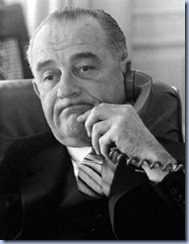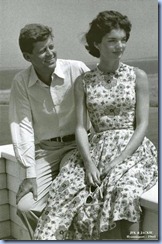 I’ve never been able to keep up with Hollywood’s constant stream of movies releases, preferring instead to wait three months until the movie is released on video. I distinctly remember my friends going to the midnight opening of The Dark Knight when it was released in 2008 and the continuous raving for the next couple of weeks. Even so, it was three years until I finally got around to watching this movie, which I’d heard so much about. Cynical because it was an action flick, and a super-hero film to boot (I’d seen the Spider Man movie and was less than impressed), I sat down hopeful to be surprised, yet prepared to be disappointed. As I watched The Dark Knight, I was entranced, my stomach in knots and my blanket up to my eyes. I kept thinking to myself, “I know this story. I know this story!”
I’ve never been able to keep up with Hollywood’s constant stream of movies releases, preferring instead to wait three months until the movie is released on video. I distinctly remember my friends going to the midnight opening of The Dark Knight when it was released in 2008 and the continuous raving for the next couple of weeks. Even so, it was three years until I finally got around to watching this movie, which I’d heard so much about. Cynical because it was an action flick, and a super-hero film to boot (I’d seen the Spider Man movie and was less than impressed), I sat down hopeful to be surprised, yet prepared to be disappointed. As I watched The Dark Knight, I was entranced, my stomach in knots and my blanket up to my eyes. I kept thinking to myself, “I know this story. I know this story!”
There are particular stories out there that, for some reason, pull at human heart strings in very singular ways. Specifically, these stories play, whether consciously or unconsciously, on the fact that every human being lives the same story, that we the human race are fundamentally made up of the same stuff, that there are some things that hold true for us all. These stories are myths.
Recently reading Robert Ray’s essay “The Thematic Paradigm,” in which he explores the idea that American films do not merely entertain, but reflect “fundamental patterns and contradictions in our society’s myths and values,” I wondered what a movie like The Dark Knight about our society. Ray says that there are two kinds of heroes in our movies. Firstly, there is the official hero, who is an outstanding citizen, upright, wise, and just. He is accepted in his community and usually has a stable professional and personal life. The second is the outlaw hero, who does not abide by the law, but instead makes his own rules for the good of others or himself. He is often daring, unreliable, and almost childlike. However, Ray points out, we usually cannot seem to choose between these two heroes, and instead merge them together into one character. He suggests that this is because America has always been ambivalent of the value of civilization. This ambivalence is revealed by the heroes of our movies, as, at the cinema, we play The King’s Speech in theatre 7 and Pirates of the Caribbean next door in theatre 8. We simply cannot choose whether to root for the “official hero”, such as King George VI or to root for the “outlaw hero,” such as Captain Jack Sparrow. The outlaw hero: brave, independent, and totally free, and the official hero: decent, just, and full of wisdom are in a continual tug-of-war with each other. On the one hand, the glamour and freedom of the outlaw hero are alluring to us. There’s a reason they’ve made four Pirates of the Caribbean movies; there is something so wonderfully tempting about Captain Jack Sparrow—he is friend to no one, feels indebted to no one, and considers only himself in every choice he makes. At the other extreme, however, what could be more heroic than George Bailey’s choice in It’s a Wonderful Life to stay home and run the Building and Loan to keep the town from going to ruins in the hands of Mr. Potter. And so the tugging rages on. In The Dark Knight this paradox of the official hero and the outlaw hero is evident in the characters of Batman and Harvey Dent, and the movie reveals a much about the ambivalence and yet absolute faith that our society has in civilization.
The Dark Knight joins this tug-of-war too, but what stopped me in my tracks, was that this duality is found not only within the film, but within the main characters. Bruce Wayne, as Batman, takes on this duality, which is the basis for entire movie. He is, in essence, both the official hero and the outlaw hero. By day, he is Bruce Wayne, Gotham City’s richest, most influential businessman, who owns close to half the city’s businesses. Like every businessman, Bruce Wayne wears a suit and tie, goes to meetings, and has his own secretary. He is highly regarded in the eyes of the city officials and is known for his philanthropy. After a fundraiser with Bruce Wayne, any politician won’t need another cent for his campaign. Fitting the bill of the official hero, Bruce Wayne is in a place of power in the city and is extremely smart with his resources and position. By night, though, this man dons the mask and armor of Batman, a secreted vigilante, who single-handedly put Gotham’s criminals behind bars, without aid or connection to Gotham’s police force. Truly, Batman himself is a lawbreaker, operating outside the rules of the common people. Even so, Gotham’s police force does not try to stop Batman, because, with crime flourishing in the city, they need Batman desperately. The incredible strength in Batman is not that he is lawless—he is not—but that he replaced Gotham’s laws with a law of his own. Because Gotham’s laws hold Batman back from bringing justice to the city, he must ignore them. Batman only has one rule: he will not kill. He must uphold this rule because he knows that when he breaks it, Batman loses his power. As his butler, Alfred, says, “He can make the choice that no one else can make—the right choice.” By holding to this law Batman makes himself more than a man. In the words of Henri Ducard, “But if you make yourself more than just a man, if you devote yourself to an ideal, and if they can't stop you, then you become something else entirely—a legend.” Batman inspires people; he brings them hope of justice. Gotham depends on Batman. It does not love him and it is not loyal to him, but it does depend on him. The genius of The Dark Knight is that the duality of the official hero and the outlaw hero in one is so blatant. Bruce Wayne struggles throughout the entire movie. On one side of the coin, Bruce Wayne wants nothing more than to be done with Batman and he does everything in his power, including helping to lock up the entire mob, to prepare Gotham to no longer need Batman. On the flip side, however, Bruce Wayne cannot give up Batman because Batman is his true identity, and it is Bruce Wayne that is the mask. Rachel sees this struggle in him when she writes in her letter, “When I told you that if Gotham no longer needed Batman we could be together, I meant it. But I'm not sure the day will come when you will no longer need Batman.” Batman holds a mythical position of this strange dichotomy of the melding of the official and outlaw hero.
In strong parallel to Batman, Harvey Dent is the secondary hero of The Dark Knight. Much more so than Batman, Harvey Dent is an official hero. He is the district attorney of Gotham city, has neatly combed blonde hair, and is going steady with the beautiful Rachel Dawes. He is known by the people as Gotham’s White Knight. Harvey Dent is a very likeable man who is smart, clever, good, and decent. Unlike Batman, he works with the police openly to fight crime, but is also very adept at it. Harvey Dent is, in many ways, similar to Batman, sharing a passion to fight crime, a symbolic image of justice in Gotham, and even feelings for the same woman. He is a brave man, explaining to Rachel, in one scene, that he’s far less scared of the mob than of the members of the Fire Brigade at his campaign fundraiser. In his first scene, during a court session, the criminal on trial pulls out a gun and points it at Harvey’s face. Without hesitation, Harvey knocks the gun out of the criminal’s hand and punches him in the nose. Totally unfazed, Harvey retorts that, “If you want to kill a public servant, I recommend you buy American.” From the start, we learn that there is a rebellious side to Harvey Dent. In this scene, he did not do the “responsible” thing and let the criminal escape, but instead, risks his own life and takes matters into his own hands. It isn’t until later in the movie that we discover Harvey’s reputation for having two different sides to his personality. Here comes that inescapable dichotomy. In addition to his nickname Gotham’s White Knight, Harvey has another nickname, which is far less pristine—Two Face. Suddenly, the official outlaw hero dichotomy is revealed. Although we never knew the exact reason Harvey earned himself this nickname, we know that he, just like Batman, has two very different sides. He is both the official hero and the outlaw hero.
To further entangle this hero paradox, it is interesting to examine the character of Batman and Harvey Dent a bit further. Ray says in “The Thematic Paradigm” that although America cannot choose between the official hero and the outlaw hero, we have a tendency to lean towards the outlaw hero. There is something completely enticing about the freedom and courage the outlaw hero brings, which are values that America itself is built on. Batman’s existence, this ideal of Bruce Wayne’s creation, fundamentally depends on Batman’s lawlessness, or in other words, on his outlaw-ish heroism. Just as Alfred reminds Bruce Wayne, as soon as Batman cows to the demands and laws of the society, Batman ceases to exist. Diametrically, Harvey Dent is the exact opposite; he cannot exist without the law. The moment he sets foot outside the law, he is corrupted. As Harvey Dent says at the start of the movie, “You either die a hero or live long enough to see yourself become the villain.” Fulfilling his own words when he tries to take justice into his own hands, he turns to murder and betrayal. Harvey kidnaps Gordon’s, his former partner, family and threatens to kill his them in the name of justice. Blaming Gordon for Rachel’s death, he claims that is only fair that Gordon share his pain. Without the law, Harvey Dent becomes another villain. That is why, at the end of the story, Batman is the true hero—the outlaw hero.
The zenith of the paradox is that after all is said and done, Harvey dead and the city on the brink of disaster, Batman too must fulfill Harvey Dent’s words. Batman shoulders the blame of Harvey Dent’s villainy and give up his title as Gotham’s hero. He becomes Gotham’s scapegoat and by “dying a hero”, saves the city. He receives no glory, no love, no admiration, yet that is not his place. Gotham depends on him. It is this story’s mythically paradoxical nature that makes me, every time since my first viewing, think to myself every time I watch The Dark Knight, “I know this story! I know this story!” I know it because I’ve heard the story many times before and because I know these heroes well. The Dark Knight is a blatant and brilliant picture of the tug-of-war between the official hero and the outlaw hero, between glory and humility, and between the dying and rising of a hero.









 Just as the roaring twenties rolled around the corner, my great-grandmother, Hattie Simmons Bush arrived in the world on May 10, 1922. Growing up the middle child of nine children, Hattie was an easy going girl, who worked hard and played harder. She grew up on a farm in Pisgah, Iowa, where her family raised sheep, pigs, and cows. When Hattie was small, she and her older sister, Delores, loved to ride their pony, Dixie, who had a crippled foot, but still gave the girls plenty of excitement. Before Christmas, they would go out to the pasture and pick out a tree, which they would decorate with candles.
Just as the roaring twenties rolled around the corner, my great-grandmother, Hattie Simmons Bush arrived in the world on May 10, 1922. Growing up the middle child of nine children, Hattie was an easy going girl, who worked hard and played harder. She grew up on a farm in Pisgah, Iowa, where her family raised sheep, pigs, and cows. When Hattie was small, she and her older sister, Delores, loved to ride their pony, Dixie, who had a crippled foot, but still gave the girls plenty of excitement. Before Christmas, they would go out to the pasture and pick out a tree, which they would decorate with candles.
 “‘It is a far greater thing that I do now than I have ever done before.’ That man was beheaded.” . . . “I’m not surprised.” --The Fantasticks
“‘It is a far greater thing that I do now than I have ever done before.’ That man was beheaded.” . . . “I’m not surprised.” --The Fantasticks When Susanna Berger stepped off the plane and into America, with one green suitcase, fourteen body-piercings, and a scared countenance, I had no idea how to pinpoint her. Susanna stayed with my family for one year as a foreign exchange student from a small German village of 600 people. For the first few weeks after her arrival, because of the language barrier between us, the only clues I had to understand who Susanna was were her possessions. She wore punk clothing, had a nose ring and a tattoo, and listened to Pink, the rock star with explicit lyrics, so at first I judged that she would be a rebellious, tough sort of girl. I quickly realized that this was not true and that Susanna was not rebellious, but very shy. There were many things about her that surprised me. Although she loved the horror movie, Saw 4, she also loved Disney’s The Lion King. Although she always went to wild parties in Germany, she also enjoyed sitting and playing strategy games for hours on end with my mother. I just couldn’t figure this girl out! It turned out to be much more difficult than I had predicted to understand our new family member. Susanna turned out to be much more than her possessions, of which she had few when she came to America. Her belongings were simple, owning one pair of shoes, a couple of books, and a couple of pairs of clothing. I had only the possessions in her one green suitcase to judge her by, which furthermore were possessions from a completely different culture than America and were not familiar to me. Because Susanna owned fewer possessions when she arrived in America, her image was freed from being chained to them, and it was easier for me to realize that there was more to her than what she had bought.
When Susanna Berger stepped off the plane and into America, with one green suitcase, fourteen body-piercings, and a scared countenance, I had no idea how to pinpoint her. Susanna stayed with my family for one year as a foreign exchange student from a small German village of 600 people. For the first few weeks after her arrival, because of the language barrier between us, the only clues I had to understand who Susanna was were her possessions. She wore punk clothing, had a nose ring and a tattoo, and listened to Pink, the rock star with explicit lyrics, so at first I judged that she would be a rebellious, tough sort of girl. I quickly realized that this was not true and that Susanna was not rebellious, but very shy. There were many things about her that surprised me. Although she loved the horror movie, Saw 4, she also loved Disney’s The Lion King. Although she always went to wild parties in Germany, she also enjoyed sitting and playing strategy games for hours on end with my mother. I just couldn’t figure this girl out! It turned out to be much more difficult than I had predicted to understand our new family member. Susanna turned out to be much more than her possessions, of which she had few when she came to America. Her belongings were simple, owning one pair of shoes, a couple of books, and a couple of pairs of clothing. I had only the possessions in her one green suitcase to judge her by, which furthermore were possessions from a completely different culture than America and were not familiar to me. Because Susanna owned fewer possessions when she arrived in America, her image was freed from being chained to them, and it was easier for me to realize that there was more to her than what she had bought.


